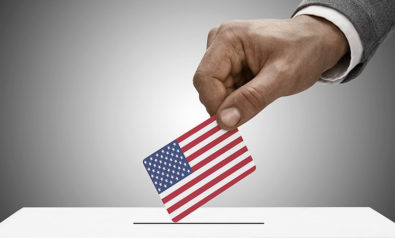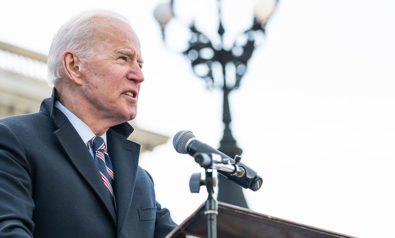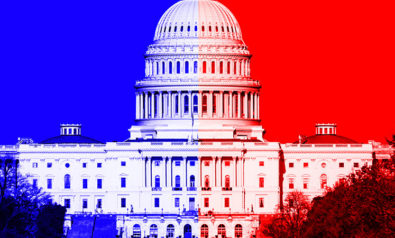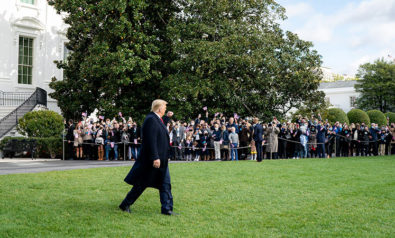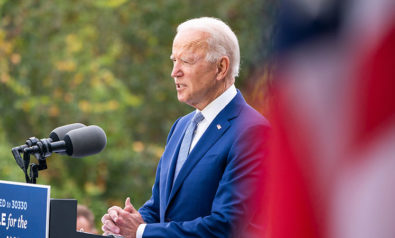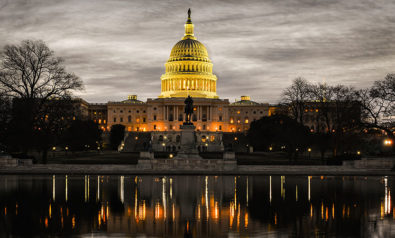America’s electoral system is structurally deficient and badly damaged. Its elections are decentralized, underfunded and prone to manipulation. It fosters partisan election officials who routinely engage in gerrymandering and accommodates active voter suppression that includes judges and courts that disavow legally registered votes. Today, only landslide results can bypass the many obstacles that exist to achieving a truly free and fair voting system in the United States.
360˚ Context: The 2020 US Election Explained
Since the 1800s, the Electoral College system has not functioned as the framers of the Constitution had intended. It was designed to be representational by district, but since Thomas Jefferson instituted the winner-take-all approach, the regimen has morphed into a muddled, skewed, corrupt mess, leaving many Americans feeling like the system is rigged.
Perpetuating Inequality
Consider this: By 2040, 30% of Americans from smaller, more rural states will elect 70 of the 100 US senators. By then, 70% of Americans will live in just 15 states and 50% of them will live in just eight of those states. Rather than help ensure equal representation under the law, the Electoral College has merely become a means of perpetuating inequality and unfairness, and is not representative of the country’s diversity. And since each state governing body can decide how the electors will vote, it is rife with partisanship and amenable to corruption.
It is only because the college exists that any candidate who may not have won the most votes can become a victor in an election. Electing leaders who do not have a majority of the popular vote is becoming more commonplace. The first time an election was lost to the candidate with the most votes was in 2000, when Al Gore won by about 500,000 votes. In 2016, Hillary Clinton won by nearly 3 million votes. On November 3, Trump could lose by 6 or 8 million this time and still conceivably win an electoral victory. Americans increasingly believe that their votes do not count and see the system as illegitimate. That must change.
The US House of Representatives hasn’t been enlarged since 1929. It is time to have a constitutional amendment to expand it to be more representative of population dispersion and the diversity of the country. Beyond that, the entire structure of the electoral system badly needs to be reformed and modernized to better reflect the composition of American society and remove some of its impurities. America needs meaningful systemic change that truly shakes up the system, not more business as usual. It is time for the American people to take back their government from career politicians, lobbyists, special interests and an elite who have all gamed the system to their own advantage.
While around one in four Americans identify as independent — more than either Democrats or Republicans — the vast majority vote for Democrat or Republican candidates rather than independents. Independent parties have historically performed poorly in state and national elections because independent voters do not vote for them, part of the issue being that independent parties and candidates sometimes represent the “looney left” or the radical right. But a bigger contributor is the absence of a meaningful independent party platform.
Meaningful Change
Going forward, candidates for any party should agree in advance to serve only one term. The immediate effect would be to strip the lobbyists and special interests of their ability to influence the way lawmakers from any party voted because those lawmakers would not need their money to get reelected. Such an approach would permit lawmakers to focus on what they were sent to Washington or the state house to do: govern, rather than spend 80% (or more) of their time raising money for their reelection and perpetuating a corrupt political system.
Meaningful, significant change is not going to occur from within mainstream political parties in America — it will only come from outside them. The party platform I would propose is based on all elected representatives subscribing to honesty, integrity, transparency and, more importantly, accountability for their action or inaction. If any elected representative in such a party fails to deliver what they say they will deliver, they would need to agree in advance to be removed from office before their term is finished.
All such elected representatives would need to agree to adhere to the laws which they pass — that such laws also apply to them, with no health plans for themselves or their families that are different than what they pass into law for everyone else. The idea would be to bring fairness, honor and dignity back to their offices and to the people they serve.
Too many of our elected officials have forgotten who sent them to Washington, who they work for and why they are there. The Democratic and Republican parties have been hijacked by extremists. The electoral system does not function as it was intended. That is why it is time for radical reform, and the American people should demand it from their government and parties.
*[Daniel Wagner is the author of “The Chinese Vortex: The Belt and Road Initiative and its Impact on the World.”]
The views expressed in this article are the author’s own and do not necessarily reflect Fair Observer’s editorial policy.
Support Fair Observer
We rely on your support for our independence, diversity and quality.
For more than 10 years, Fair Observer has been free, fair and independent. No billionaire owns us, no advertisers control us. We are a reader-supported nonprofit. Unlike many other publications, we keep our content free for readers regardless of where they live or whether they can afford to pay. We have no paywalls and no ads.
In the post-truth era of fake news, echo chambers and filter bubbles, we publish a plurality of perspectives from around the world. Anyone can publish with us, but everyone goes through a rigorous editorial process. So, you get fact-checked, well-reasoned content instead of noise.
We publish 2,500+ voices from 90+ countries. We also conduct education and training programs
on subjects ranging from digital media and journalism to writing and critical thinking. This
doesn’t come cheap. Servers, editors, trainers and web developers cost
money.
Please consider supporting us on a regular basis as a recurring donor or a
sustaining member.
Will you support FO’s journalism?
We rely on your support for our independence, diversity and quality.



